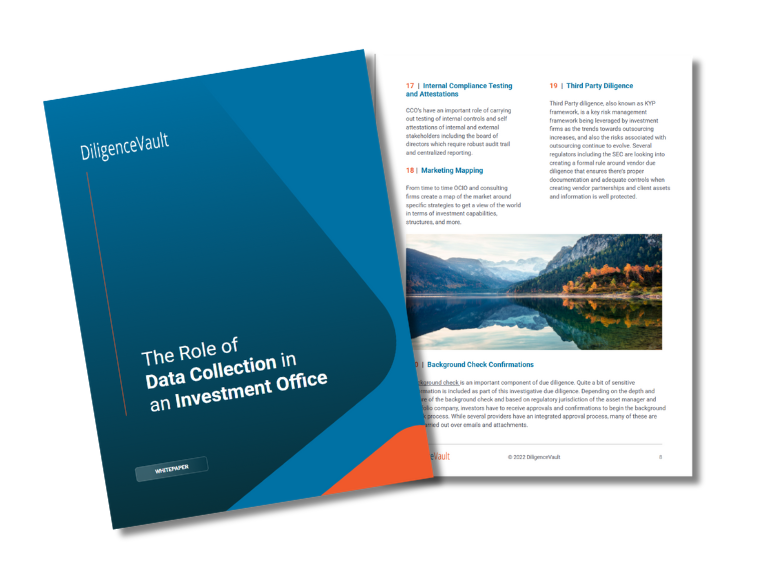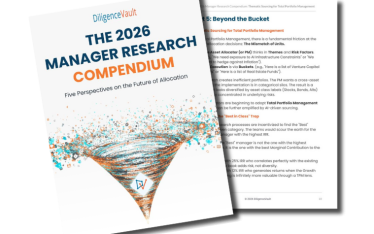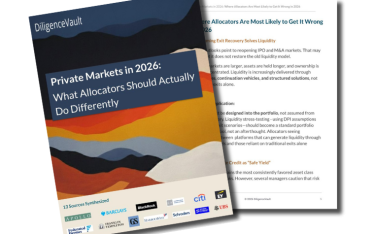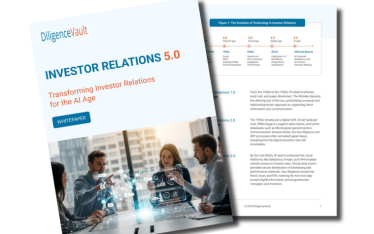What is due diligence and why is it so important for the asset management industry?
A comprehensive due diligence process assesses investment, operational, compliance, ESG, accounting, legal and information security risks associated with the investment. Successful execution of a due diligence framework requires many stakeholders both internal and external to review and opine on the information and risks involved, but they often reach out to the investment partners separately as their information needs are not always the same. The due diligence framework also depends on a significant amount of data collection, both qualitative and quantitative, including critical documents around legal formation, organizational charts, LPA, PPM, pitch deck, compliance and operational policies, regulatory filings, to name a few.
As the magnitude and velocity of the diligence data is increasing, the risks associated with a framework which is not centralized and is managed via manual tracking of information exchange, as well as analysis filled with copy and paste is even more frustrating for all involved.
In our whitepaper “The Role of Data Collection In An Investment Office”, learn about the 17 different types of due diligence use cases that our clients leverage DiligenceVault’s platform for, and how they create a common and single source of truth, seamlessly capture due diligence datasets, and access critical insights on the investments efficiently.
Know more about our platform here.
Signup below to download the PDF.



